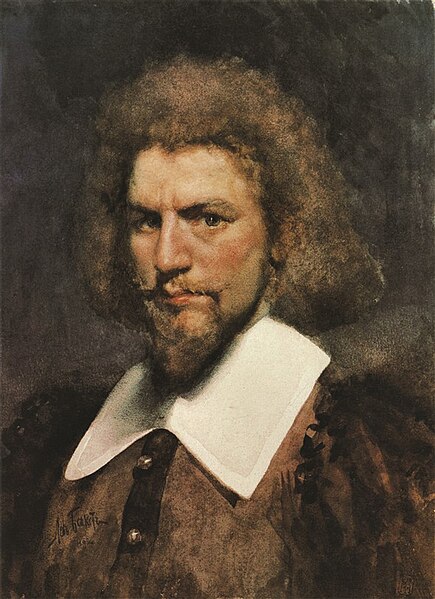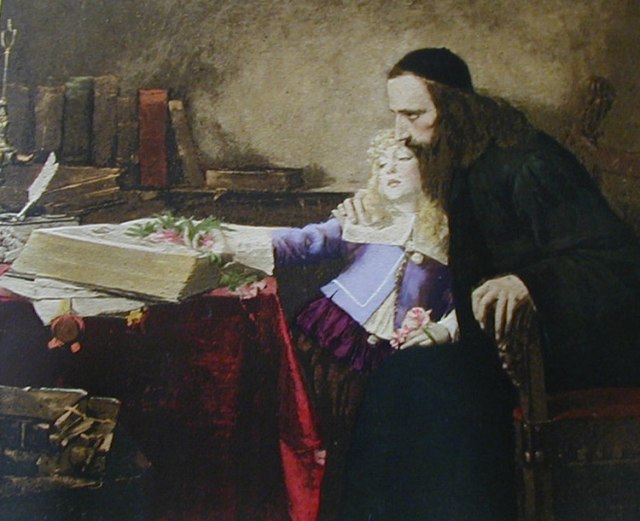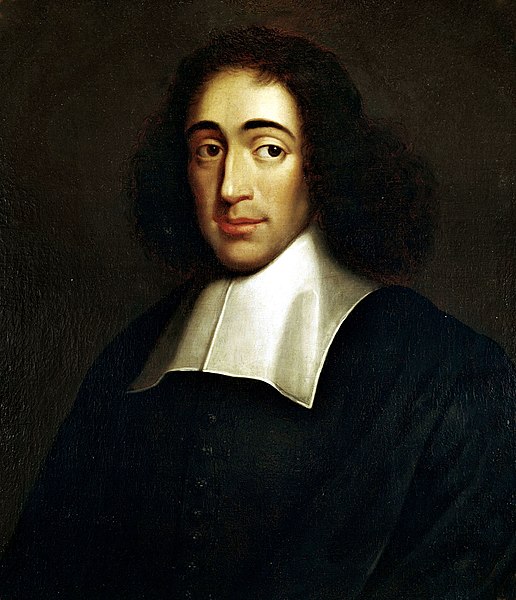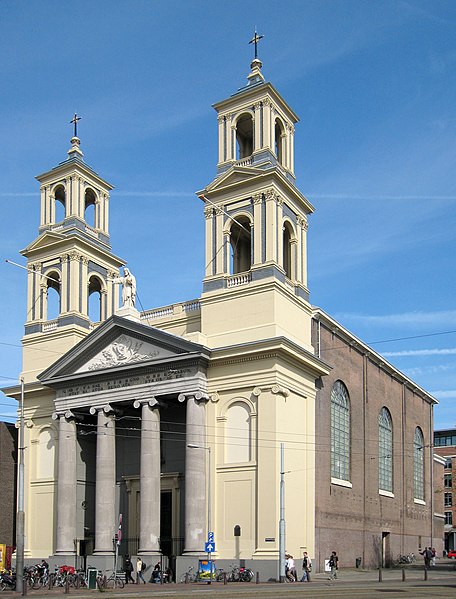Uriel da Costa was a Portuguese Sephardi philosopher who was born a New Christian but returned to Judaism, whereupon he questioned the Catholic and rabbinic orthodoxies of his time. This led him into conflict with both Christian and rabbinic institutions: his books were placed on the Index Librorum Prohibitorum and he was excommunicated by several Jewish authorities. His iconoclastic life culminated in suicide in c. 1640.
Uriel da Costa, posthumous portrait by Leon Bakst (1897)
Uriel da Costa's excommunication (1888) by Meijer de Haan took 8 years of work, created a huge backlash, and disappeared shortly after and still not extant.
Exemplar Humanae Vitae, by Uriel Acosta.
Imagined portrait of da Costa instructing the young Baruch Spinoza, by Samuel Hirszenberg (1901)
Baruch (de) Spinoza, also known under his Latinized pen name Benedictus de Spinoza, was a philosopher of Portuguese-Jewish origin. As a forerunner of the Age of Reason, Spinoza significantly influenced modern biblical criticism, 17th-century rationalism, and contemporary conceptions of the self and the universe, establishing himself as one of the most important and radical philosophers of the early modern period. He was influenced by Stoicism, Maimonides, Niccolò Machiavelli, René Descartes, Thomas Hobbes, and a variety of heterodox Christian thinkers of his day.
Baruch Spinoza
The Moses and Aaron Church now stands at the site of Spinoza's childhood home.
Samuel Hirszenberg's imagined scene of Uriel da Costa instructing Spinoza (1901)
Excommunicated Spinoza by Samuel Hirszenberg (1907), the second of his two modern paintings imagining scenes of Spinoza's life.







